- Home
- Peggy Webb
Phantom of Riverside Park
Phantom of Riverside Park Read online
PHANTOM OF RIVERSIDE PARK
Peggy Webb
Phantom of Riverside Park
All rights reserved. This book is a work of fiction. The events described are imaginary, and the characters are fictitious and not intended to represent specific living persons.
ISBN 978-0-9899555-9-1
Copyright 2014 by Peggy Webb
Cover design copyright 2014 by Vicki Hinze
Canstockphoto.com (Manipulated)
Excerpt for use in any review, the reproduction or utilization of this work in whole or in part in any form by any electronic, mechanical or other means, now known or hereafter invented, including xerography, photocopying and recording, or in any information storage or retrieval system, is forbidden, without the written permission of the publisher.
Published in the United States of America
Smashwords Edition
PRAISE FOR THE AUTHOR
“Lovely, flowing prose…a nuanced character study.”
Booklist
“Wonderful style of storytelling…an unforgettable book.”
Fresh Fiction
“Webb captures charm and grace…sure to delight.”
The Times Record News
“Webb has penned a memorable story, not to be missed.”
Wordweavers
On The Sweetest Hallelujah by Elaine Hussey (pen name for Peggy Webb)
“Hussey has written a lovely, poetic book about race, love, mothers, daughters
and friends that navigates a spectrum of emotional minefields.”
Kirkus Review
On The Tender Mercy of Roses by Peggy Webb writing as Anna Michaels
“An unforgettable story told with astonishing skill and clarity by a truly gifted writer.”
NY Times bestselling author PAT CONROY
“A thrilling page-turner…a treasure!”
CASSANDRA KING, author of The Same Sweet Girls
“Enchanting …magical moments of insight that took my breath away!”
NY Times bestselling author MARY ALICE MONROE
“A magical story…lyrical and powerful.”
NY Times bestselling author, PATTI CALLAHAN HENRY
“A story so moving and lyrically written it sometimes seems like a dream.”
Delta Magazine
Table of contents
Praise for the Author
Book One: “The past is not dead; it’s not even past.” William Faulkner
Chapter One
Chapter Two
Chapter Three
Chapter Four
Chapter Five
Chapter Six
Chapter Seven
Chapter Eight
Chapter Nine
Chapter Ten
Chapter Eleven
Chapter Twelve
Chapter Thirteen
Chapter Fourteen
Book Two: “And so we beat on, boats against the current, borne back ceaselessly into the past.” F. Scott Fitzgerald, from The Great Gatsby
Chapter Fifteen
Chapter Sixteen
Chapter Seventeen
Chapter Eighteen
Chapter Nineteen
Chapter Twenty
Chapter Twenty-one
Chapter Twenty-two
Chapter Twenty-three
Chapter Twenty-four
Chapter Twenty-five
Chapter Twenty-six
Book Three: “We are such stuff as dreams are made on.” William Shakespeare from The Tempest
Chapter Twenty-seven
Chapter Twenty-eight
Chapter Twenty-nine
Chapter Thirty
Chapter Thirty-one
Chapter Thirty-two
Chapter Thirty-three
Chapter Thirty-four
Chapter Thirty-five
Chapter Thirty-six
Chapter Thirty-seven
Chapter Thirty-eight
If You Enjoyed this Book …
About the Author
Other Titles by this Author
BOOK ONE
“The past is not dead; it’s not even past.”
William Faulkner
“The Mississippi Delta begins in the lobby of The Peabody Hotel and ends on Catfish Row in Vicksburg.”
David Cohn, l935
Chapter One
When you live in the middle of your own tragedy you get so used to the daily terror that you can sail unharmed past the boulders that drop into your path at every turn. It’s the pebbles that make you trip and fall.
Elizabeth Jennings’ pebble was a pack of peanuts that wouldn’t open. She’d waited all day for them, standing on her feet in Celine’s Bakery where she worked, smelling the sugar and the hot oil used to fry the doughnuts and humming “Amazing Grace” every now and then to cover the sound of her rumbling stomach.
By the grace of God and some tough genes passed on to her from Papa and Mae Mae, the grandparents who practically raised her, she survived till the clock on the wall chimed five and she was free at last.
She put her money in the machine then snatched her peanuts and dropped them into her purse. She wasn’t about to eat them in front of Celine, the Simon Legree of bosses. Show the least bit of weakness and some people will run all over you. Celine was one of those.
When Elizabeth had first started working at the bakery, she’d asked Celine about taking some of the day-old doughnuts home to her son and her grandfather. Her boss had yelled at her as if she’d suggested something obscene.
“What do you think I’m running here? A charity? I take the culls home to Mama.”
Looking at the huge pile of culls, Elizabeth had pictured an elephantine woman sucking up sugar like a vacuum cleaner. Celine obviously ate her share, too. Her mean little eyes made Elizabeth think of raisins set in a glob of yeast-rising dough.
“You want doughnuts,” her boss had screamed, “you pay for doughnuts, Lizzie.”
Right then and there Elizabeth swore to herself she would walk a mile on razor blades before she’d ever buy a doughnut from Celine Delinsky. Furthermore, she wasn’t fixing to cow down to her, even if it meant losing her job before she ever got started good.
“My name is not Lizzie. It’s Elizabeth. Like the queen.” She picked up her purse and headed toward the door.
“Where do you think you’re going? You’ve got work to do.”
Elizabeth stood at the door with her back to Celine, stiff-necked and proud. The silence that stretched between them was so deep and wide, you could drive a truck through it. With her hand on the door Elizabeth thought of herself traipsing the streets looking for another job. She thought of her grandfather and her son depending on her.
Lord, what had she done now and when was she ever going to learn? Torn between swallowing her pride or walking out the door, she heard Celine clear her throat.
“Ahhh... Elizabeth, I’ll let you put your purse in my office. There’s no telling what all kind of riff raff will be coming in here today. A body can’t be too careful.”
Elizabeth accepted the grudging concession, and in the three and a half years she’d worked there it was the only one Celine had ever made. They worked together in a state of uneasy truce. When Elizabeth got hungry she bought peanuts, and when she wanted doughnuts she walked to Levitt’s Bakery, six blocks out of her way.
“You’re stubborn as that old mule I used to keep,” Papa would sometimes tell her, and Elizabeth guessed it was true.
Otherwise why did she walk three blocks before she ever opened her peanuts, her stomach growling every step of the way?
She wanted to make sure Celine didn’t see, that’s why. The crowd jostled around her as Elizabeth pulled at the corner that said open here. The ce
llophane didn’t budge. Not the slightest tear. She tried using her teeth. No luck. She tried poking a hole with her fingernails.
Elizabeth who was normally a soft-spoken, easy-going woman wanted to throw the bag on the sidewalk and stomp it, screaming. Instead she gouged it with her car keys. All of a sudden the bag split and peanuts flew every which way. Pigeons swooped out of trees and off the roofs of tall buildings. Swarms of them. Greedy, nasty birds feasting on her lunch/supper.
The peanuts magnified in significance, metamorphosed into dreams spent and wasted, and all of a sudden Elizabeth’s whole history swam past her in the heat waves that rose up from the sidewalk. She crumpled onto the stoop of the Lassiter Building and cried, great gulping sobs that provided the soundtrack for the movie playing through her head.
She saw herself hiding under the bed while her mother Judith railed about Elizabeth’s shortcomings and her father Manny sat on a handmade kitchen chair with his head bowed. In Judith’s tirade, Manny Jennings’ own transgressions got mixed up with his daughter’s, and his infamous ancestor Major Hiram Jennings thundered through in disgrace. The walls shook as Judith built to her finale where she put her dead hero Gladys Presley, mother of the famous icon, on a pedestal that Judith, herself, would have joined if she hadn’t given birth to a daughter whose lineage doomed her to failure. Elizabeth will never amount to a hill of beans.
That had been Judith’s oft-expressed prediction, and Elizabeth had made it come true.
Tears burned her cheeks and people on the street stopped to stare, but Elizabeth was only vaguely aware of them. She saw herself pregnant and scared, exiled from school, exiled from her father’s house. She saw her flight from the Delta in an old pickup truck with Papa at the wheel acting as if they were embarking on a grand adventure instead of leaving her hometown in disgrace.
“Can I help you, young woman?”
The man bending over her was wearing some sort of red uniform and his skin was the color of old parchment. His kindness made Elizabeth cry even harder.
“Let me get you inside. I’ll get you something cool to drink. This heat is enough to upset anybody.” He fluttered to a stop, a large and benevolent bird out of his element.
“No, thank you. I have to go.”
“You shouldn’t be walking about all upset like that. Let me call you a cab.”
She had fourteen dollars and forty-five cents in her pocket, and she had to stretch it over six days and three people. He might as well have suggested a ride to the moon.
“No, really. Thank you, but no. It’s just up the street. It’s the...the Peabody. They’re expecting me.”
Elizabeth left the old man standing on the sidewalk like some molting, skinny-legged red bird.
What if she just kept on going? What if she went clear out of Memphis and hitchhiked across the Arkansas Bridge with a trucker who was headed south all the way to the border of Mexico? Elizabeth could cross over and call herself Chiquita like the banana and find a job in a nice cantina where she would earn enough money to live like a queen. All by herself. She could loll on the beach when she wanted to. She’d read good books. She’d learn to sip margaritas.
Across the street was Riverside Park where her grandfather and her child waited for her, Papa with his hope he carried around like a battered battle flag and Nicky with his disfigured lip that made him the brunt of bullies. Just last week they’d surrounded him at the park, calling him fat lips till Nicky burst into tears and Papa chased them off with his walking cane.
“It’s not your fault,” Papa had told her when Nicky was born. “I’m gonna take care of you and the baby.”
“Who will take care of you, Papa?”
“God.”
Elizabeth supposed He did, with a little help from her. She worked two jobs, and ought to be grateful to get them.
Today, though, she was all out of gratitude and courage and a stiff upper lip. She couldn’t bear to pick up her little family at the park and take them to a house sinking down on itself in a neighborhood where drug dealing was more common than sandlot basketball.
“I am running away.”
She said this aloud, and a man with two snooty-looking poodles jerked the leashes to remove his dogs from her path. As if she were crazy. As if she were a woman who had lost her marbles and didn’t know where to find them.
Suddenly there ahead of her was the Peabody Hotel, symbol of everything that was good about the Old South, the easy grace, the unstudied charm, the slow drifting of days that afforded time to sit on verandahs or in bars with brass foot railings and sip mint juleps.
Elizabeth pushed open the heavy doors and was suddenly caught up in the past. Her parents had brought her to see the Peabody ducks when she was five and still owned the world.
It was only when she entered school that she realized she didn’t own the world at all. She was a dirt poor country girl in a borrowed dress and hand-me-down shoes. Her classmates, all those little girls bound with pink ribbons and prejudices handed down by generations of landed Delta gentry, had formed a circle around her, chanting, cotton patch trash.
By the time she was eight, Elizabeth decided a shadowy ancestor named Major Hiram Jennings must have stolen her future, for her mother had repeated the story of his folly so often she knew it by heart:
In l872 when gambling was as common as grand balls in the South, Elizabeth’s ancestor had swaggered into the Peabody full of bravado and bourbon and won two hands of seven-card stud. Holding a king-high straight flush he’d yelled, “Lady Luck’s sittin’ on my lap tonight, boys,” then he’d wagered the only thing he had worth wagering, a thousand acres of the richest Delta land east of the Mississippi.
With one draw of the card, Elizabeth’s whole history changed. Major Hiram Jennings lost to the ace.
Sometimes it seemed to Elizabeth that she had not been born in the Delta at all, but had sprung to life in the Peabody more than a hundred years ago when Hiram Jennings played his losing hand. She closed her eyes and gathered her strength. She had to go to Riverside Park and fetch her family. She had supper to prepare, bedtime rituals to perform. She had a night job waiting with Quincy’s Cleaning Service.
“I thought I might find you here.” Suddenly there was Papa, his back stooped and his hands spotted with age and gnarled with arthritis. He squeezed her shoulder, knowing why she was there, knowing and understanding. “Don’t look back, Elizabeth. It does no good.”
“Mommy!” Nicky launched himself at her squealing with laughter then covered her face with kisses; and Elizabeth thought, this is the reason I can never in a million years run away and call myself Chiquita.
“Did I grow in your belly?” Nicky pressed his smudged face right up to hers, and she felt defeated all over again. Nicky’s lips had been left disfigured by a severe infection from the welfare-paid surgery that had corrected his garbled speech from a cleft palate. I wish I could help you, the doctor had told Elizabeth when she went back to him about the new problem. But welfare doesn’t pay for cosmetic surgery.
Since then she’d been turned down by every agency she knew, so she was saving up for the surgery, cramming whatever cash she could spare into a ceramic cookie jar that had belonged to the grandmother she called Mae Mae.
“Did I grow there,” Nicky said. “Quincy said I did.”
“Lord, that woman.” Papa beseeched the ceiling, but Elizabeth only laughed.
“You certainly did.”
“Am I a belly button?”
“No, you’re a boy. A hungry little boy. Let’s get you home and feed you.”
She linked herself to her little family with Nicky swinging between her and Papa, a four-year-old boy who owned the world. And why shouldn’t he? He had Papa and Elizabeth to shield him from the ugly truth of his life, Papa who watched over him with the fierce protectiveness of an avenging angel and Elizabeth who edited out Judith’s harsh legacy and taught him to sing Mae Mae’s theme song, “Look for the Silver Lining.”
Nicky embraced it as
his own. As they approached their house, he shouted, “Look, Papa. I see a silber lining.”
“I see it too,” he said, then shielded his eyes and looked toward the west where the sun lay almost hidden behind a gray cloud, a thin rim of gold barely showing.
Hoping she’d find the same magic, Elizabeth looked, but all she could see were the sagging shutters and the broken front steps and the ugly spotted roof where brown shingles had been used to patch the black ones already there. The rude rental house was all her fault. She never saw it without remembering Papa’s neatly kept white farmhouse with the bright blue shutters and the swing on the front porch. She never viewed the unkempt yards and scraggly flowerbeds of her present neighborhood without picturing the massive magnolia trees Papa had been so proud of, the rolling green pastures and the lake where in the hot summertime fat cows waded up to their ankles to keep cool, the gardens Mae Mae tended. A rainbow of color had bloomed there season after season.
Papa never spoke of his farm, never mentioned the big barn with its rows of stables and its stacks of clean smelling hay. But Elizabeth knew he missed it. She could see longing in the faraway look he sometimes got, in the way he would tip his head forward and close his eyes when mention of farm prices would come on the six o’clock news.
The sense of loss Elizabeth felt would suck her soul right out of her if she’d let it. Instead she left Papa and Nicky admiring his latest silver lining while she went inside to prepare their dinner.
The refrigerator was bare save for a carton of milk, a carrot and two beef and bean patties. Elizabeth grated the carrot over the patties to look like cat whiskers.
“Oh boy, kitty cats for supper,” Nicky yelled. “Yay!”

 Magnolia Wild Vanishes (A Charmed Cat Mystery, Book 1)
Magnolia Wild Vanishes (A Charmed Cat Mystery, Book 1) Just One Look
Just One Look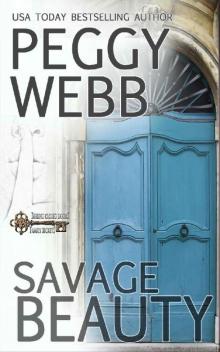 SAVAGE BEAUTY
SAVAGE BEAUTY Elvis and the Devil in Disguise (A Southern Cousins Mystery With Bonus Charmed Cat Mystery)
Elvis and the Devil in Disguise (A Southern Cousins Mystery With Bonus Charmed Cat Mystery) Elvis and the Blue Suede Bones
Elvis and the Blue Suede Bones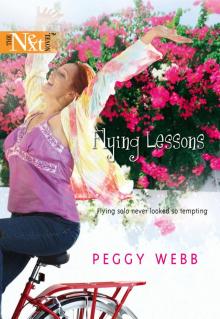 Flying Lessons
Flying Lessons The Smile of an Angel
The Smile of an Angel Any Thursday (Donovans of the Delta)
Any Thursday (Donovans of the Delta) Stars to Lead Me Home: Love and Marriage (A Novel)
Stars to Lead Me Home: Love and Marriage (A Novel) Bittersweet Passion
Bittersweet Passion Donovan’s Angel
Donovan’s Angel Valley of Fire (The Mississippi McGills)
Valley of Fire (The Mississippi McGills) Summer Hawk
Summer Hawk Force Of Nature
Force Of Nature Christmas in Time
Christmas in Time The Dixie Virgin Chronicles: Bea (Book 4)
The Dixie Virgin Chronicles: Bea (Book 4)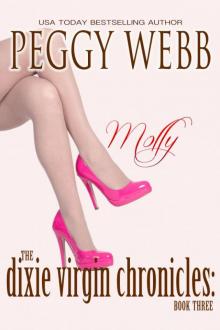 The Dixie Virgin Chronicles: Molly (Book 3)
The Dixie Virgin Chronicles: Molly (Book 3) Gray Wolf's Woman
Gray Wolf's Woman Dark Fire
Dark Fire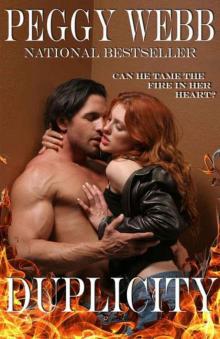 Duplicity
Duplicity The Accidental Princess
The Accidental Princess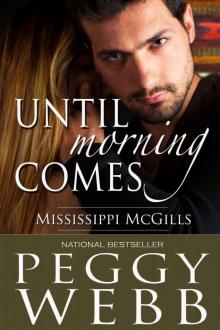 Until Morning Comes (The Mississippi McGills)
Until Morning Comes (The Mississippi McGills) Hallie's Destiny (The Donovans of the Delta)
Hallie's Destiny (The Donovans of the Delta)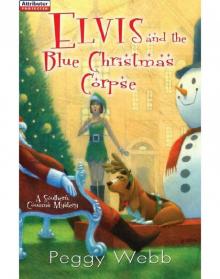 Elvis and the Blue Christmas Corpse
Elvis and the Blue Christmas Corpse Standing Bear's Surrender
Standing Bear's Surrender Warrior's Embrace
Warrior's Embrace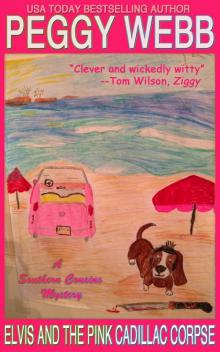 Elvis and the Pink Cadillac Corpse (A Southern Cousins Mystery, Plus Bonus Recipes)
Elvis and the Pink Cadillac Corpse (A Southern Cousins Mystery, Plus Bonus Recipes) A Prince for Jenny
A Prince for Jenny The Dixie Virgin Chronicles: Janet (Book 2)
The Dixie Virgin Chronicles: Janet (Book 2) MM03 - Saturday Mornings
MM03 - Saturday Mornings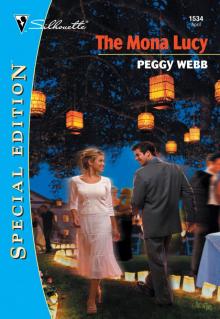 The Mona Lucy
The Mona Lucy The Christmas Feast
The Christmas Feast Higher Than Eagles (Donovans of the Delta)
Higher Than Eagles (Donovans of the Delta)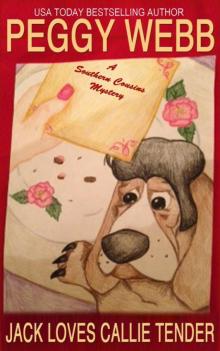 Jack Loves Callie Tender
Jack Loves Callie Tender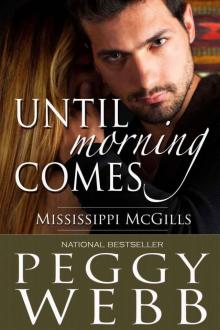 MM02 - Until Morning Comes
MM02 - Until Morning Comes MM01 - Valley of Fire
MM01 - Valley of Fire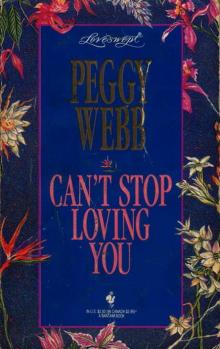 Can't Stop Loving You
Can't Stop Loving You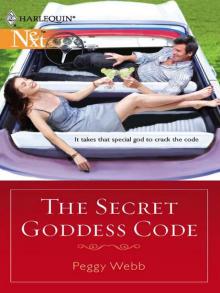 Secret Goddess Code
Secret Goddess Code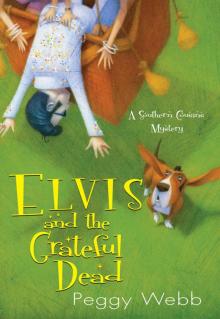 Elvis and the Grateful Dead
Elvis and the Grateful Dead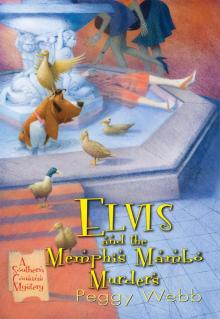 Elvis And The Memphis Mambo Murders
Elvis And The Memphis Mambo Murders Touched by Angels
Touched by Angels The Dixie Virgin Chronicles: Belinda (Book 1)
The Dixie Virgin Chronicles: Belinda (Book 1) Sleepless Nights (The Donovans of the Delta)
Sleepless Nights (The Donovans of the Delta) Saturday Mornings (The Mississippi McGills)
Saturday Mornings (The Mississippi McGills)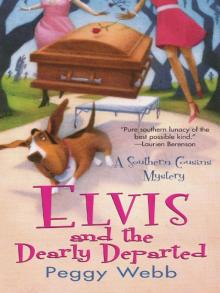 Elvis and The Dearly Departed
Elvis and The Dearly Departed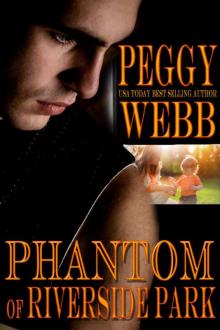 Phantom of Riverside Park
Phantom of Riverside Park